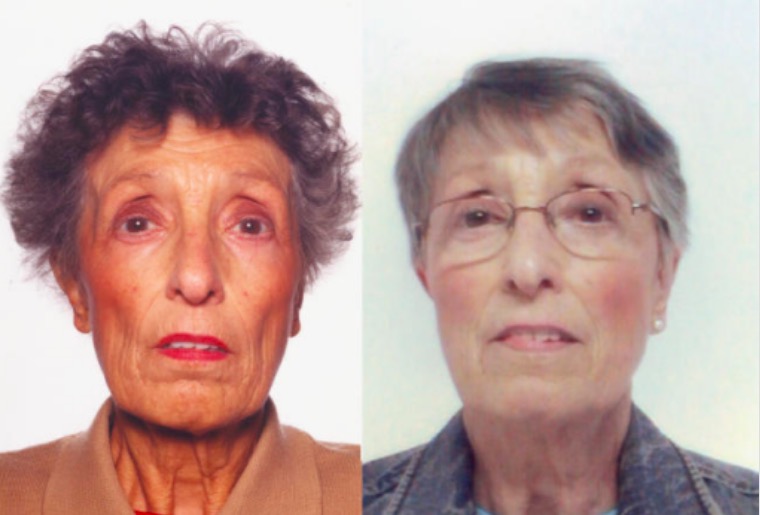Playlist
Show Playlist
Hide Playlist
Adrenal Case: 68-year-old Man with Nausea, Lightheadedness, Back and Abdominal Pain
-
Slides 01-02-02 Adrenal Pituitary.pdf
-
Download Lecture Overview
00:01 Let's go on to another case. 00:03 A 68-year-old man is evaluated in the hospital for several hours of nausea, lightheadedness, and abdominal pain. 00:10 He underwent a laparoscopic cholecystectomy four days ago. 00:14 He had been doing well postoperatively until now. 00:17 Medical history is significant only for gouts. 00:20 Medications are prophylactic dose unfractionated heparin and as needed oxycodone. 00:27 On physical examination, his temperature is 37.2 degrees Celsius. 00:31 Blood pressure is 80/50. 00:33 Pulse rate is 110 beats per minute with a respiration rate of 18. 00:39 His BMI is 26. 00:41 Examination of the abdomen shows a clean and dry surgical wound. 00:46 Cardiac exam reveals regular tachycardia. 00:49 There is no pain with palpation of the abdomen or lower back. 00:54 His skin pigmentation is normal. 00:58 There is a low serum sodium of 130 mEq/L. 01:03 Potassium is 6.0 mEq/L. Random cortisol is less than 2 μg/dL. 01:12 What is the most likely diagnosis? Here we have a patient presenting with fairly nonspecific features after surgery but does manifest with postoperative hypotension as well as abdominal pain and nausea. 01:30 He has a low serum cortisol. 01:33 This, in conjunction with the low blood pressure, gives us the most likely diagnosis of adrenal insufficiency. 01:43 When a stem in a USMLE CK question mentions the word skin pigmentation, either in the positive or the negative, always consider adrenal insufficiency. 01:55 Primary adrenal insufficiency does manifest with hyperpigmentation within the palmar creases of the hands or in the buccal mucosa or the mouth. 02:05 This, when found, is very specific for a diagnosis of Addison’s disease. 02:11 The absence of skin pigmentation certainly doesn't rule out the diagnosis as in this case. 02:17 The labs are typical for low cortisol state, particularly the electrolytes where you see a low sodium and a high normal potassium as well as a low cortisol. 02:30 The conclusion here is this patient has adrenal insufficiency probably caused by his use of unfractionated heparin that has caused bilateral adrenal hemorrhage. 02:41 The next test to confirm the low cortisol is to perform a cosyntropin stimulation test. 02:47 This patient's primary adrenal failure is likely due to the bilateral adrenal hemorrhage. 02:53 Acute onset of nausea, lightheadedness, back and abdominal pain as well as hypotension are usually consistent features of acute adrenal failure. 03:03 Lab studies show hyponatremia, hyperkalemia, and hypocortisolemia which are also consistent with the diagnosis. 03:11 The risk factors for adrenal hemorrhage include anticoagulant therapy, which may occur with treatment levels as well as levels within the therapeutic range, also the post-operative state, abnormalities of hemostasis such as heparin-induced thrombocytopenia or the antiphospholipid antibody syndrome, and in the presence of sepsis. 03:33 Failure to identify acute adrenal failure in a timely manner may lead to cardiovascular collapse. 03:39 Adrenal hemorrhage can often be visualized on abdominal CT scanning. 03:45 That would be indicated in the management of this patient. 03:48 Treatment of acute adrenal failure with stress-dose glucocorticoids is indicated. 03:53 Hydrocortisone in a range of 50-100 mg intravenously every six to eight hours is recommended. 04:02 Further supportive care with intravenous fluids and vasopressors may be needed if the patient's blood pressure does not respond.
About the Lecture
The lecture Adrenal Case: 68-year-old Man with Nausea, Lightheadedness, Back and Abdominal Pain by Michael Lazarus, MD is from the course Adrenal Gland Disorders. It contains the following chapters:
- Adrenal Gland Case: 68-year-old Man with Nausea and Abdominal Pain
- Adrenal Insufficiency
Included Quiz Questions
What is the most likely diagnosis of the patient described below? A 68-year-old man presents with nausea, lightheadedness, and back and abdominal pain lasting several hours. He had a laparoscopic cholecystectomy 4 days ago and has had an unremarkable postoperative course. Medical history: Gout. Medications: Therapeutic unfractionated heparin and as-needed oxycodone. Vital signs: Temperature is 37.2°C (99.0°F), blood pressure is 80/50 mm Hg, pulse is 110 beats/min, 18 breaths per minute, and BMI is 26 kg/m2. Physical examination: Clean and dry surgical wound on abdomen, regular tachycardia, no pain with palpation of abdomen or lower back, normal skin pigmentation. Laboratory test results: Sodium level of 130 mEq/L, potassium level of 6.0 mEq/L, and random cortisol of <2 μg/dL.
- Adrenal insufficiency
- Pituitary ischemia
- Hypothalamic infarction
- Autoimmune polyendocrine syndrome
Customer reviews
5,0 of 5 stars
| 5 Stars |
|
5 |
| 4 Stars |
|
0 |
| 3 Stars |
|
0 |
| 2 Stars |
|
0 |
| 1 Star |
|
0 |




